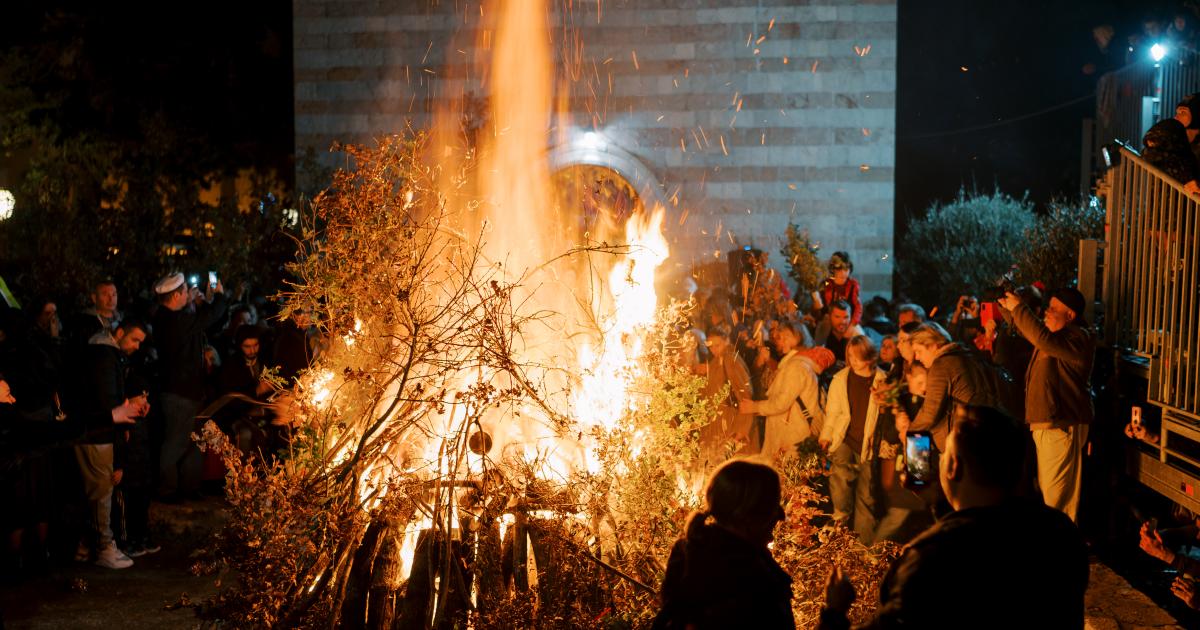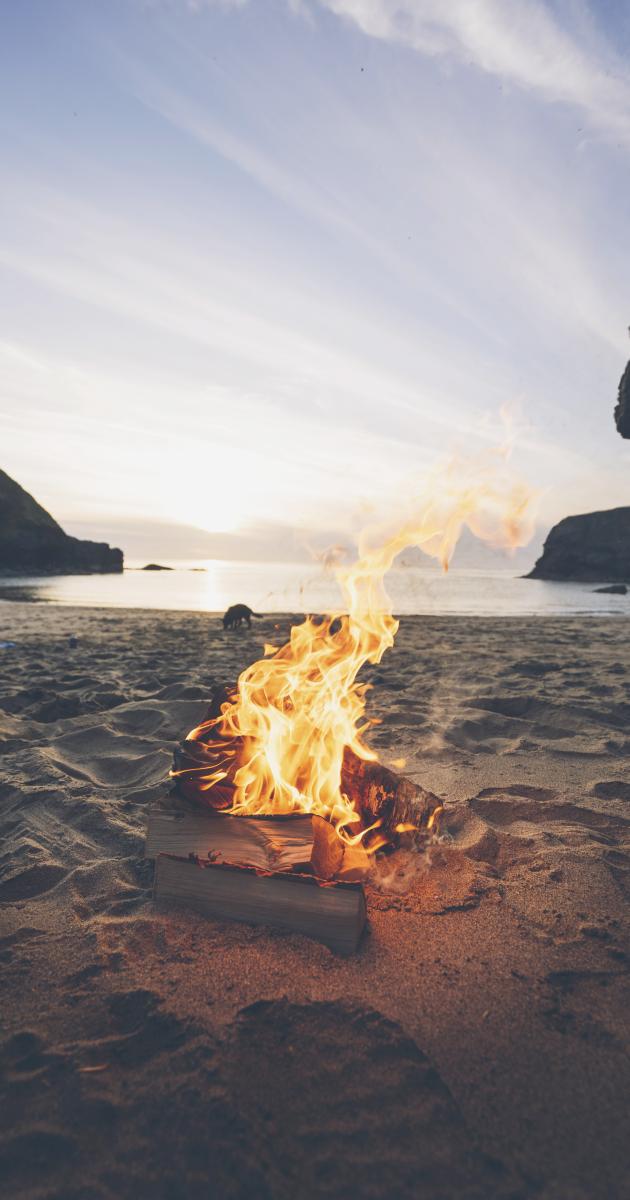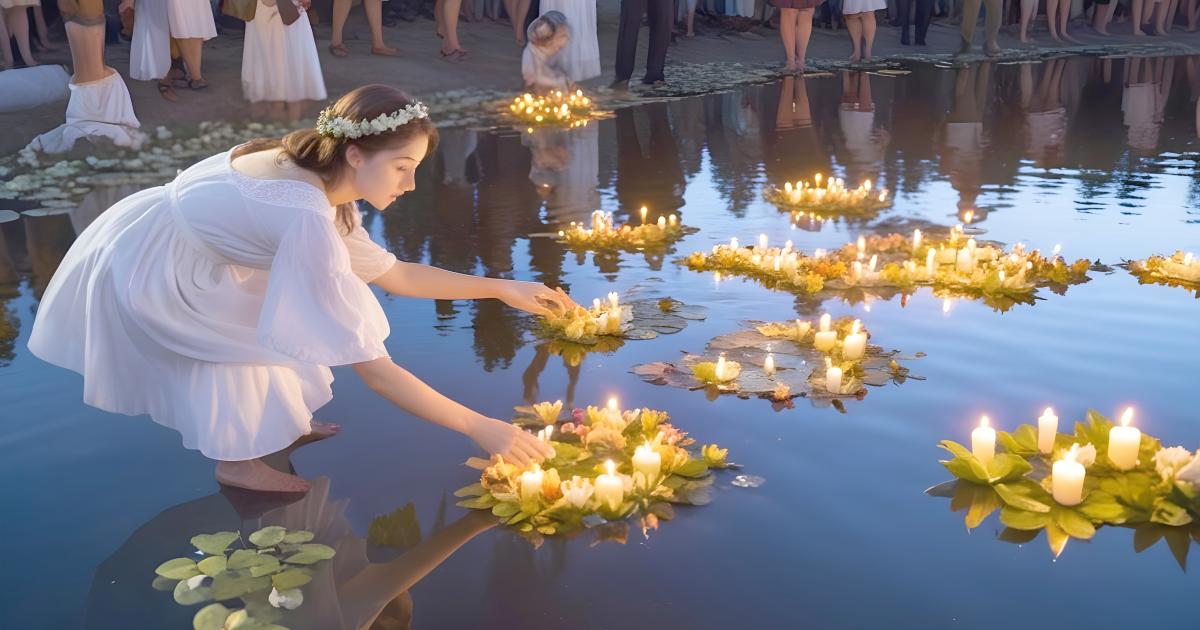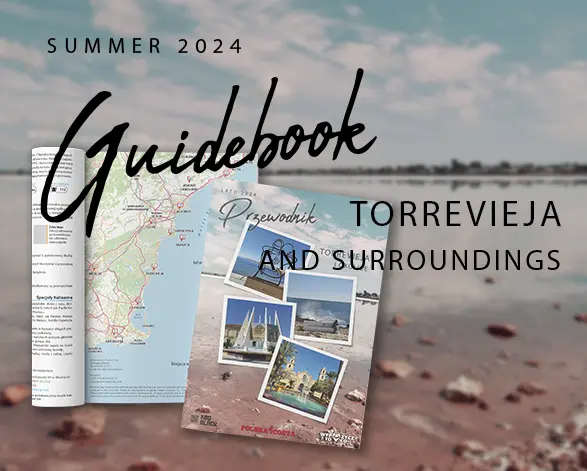
Magic of the Night June 23: Poland and Spain
On June 23, Midsummer Night, also known as Kupala Night, is celebrated in Poland. It is one of the most magical holidays on the Polish calendar, combining pagan and Christian traditions. The holiday falls on the shortest night of the year, just before the day of St. John the Baptist.
The roots of Midsummer Night date back to ancient Slavic rituals associated with the worship of the sun and fertility. In pagan times, the holiday was called Kupala, celebrated in honor of the god of fire and the sun. After the introduction of Christianity, the holiday has been linked to the day of St. John the Baptist, giving it a new dimension and symbolism.
The celebration of Midsummer Night in Poland is associated with numerous customs and rituals. One of the most important elements is the burning of bonfires, which are supposed to protect against evil forces and ensure fertility. Young people jump over the fire, which symbolizes purification and the addition of courage.
Garlands are also an inseparable element. Girls weave them from flowers and herbs and then let them float on the water, which is supposed to augur future marriage. The boys try to fish out these garlands, believing that the one whose garland they catch will become their future bride.
Another important symbol is the search for the legendary fern flower, which, according to legend, blooms only on this one night and brings good luck and wealth to the one who finds it.
Nowadays, Midsummer Night attracts crowds both in cities and in the countryside. Festivals, concerts and re-enactments of ancient rituals are organized.

Fiesta de San Juan in Spain:
The Fiesta de San Juan, celebrated on June 23 in Spain, is one of the country's most spectacular holidays. It is a time of joy, fire and water, which symbolize purification and new beginnings.
San Juan has its roots in pagan rituals in honor of the sun, which in Spain were transformed by Christian influence into the celebration of St. John the Baptist. The holiday is particularly popular in coastal regions such as Catalonia, Valencia and Andalusia, where it has a particularly lavish character.
The centerpiece of San Juan are huge bonfires, called "hogueras." People gather around them to sing, dance and jump over the flames. Jumping over the fire is supposed to bring good luck and ward off evil spirits. In some regions, such as Alicante, huge wooden structures are built and burned during the night, symbolizing purification and new beginnings.
Fireworks displays are also an integral part of the celebration, lighting up the night sky, adding magic and spectacle to the holiday. Fireworks symbolize joy and celebration, and their bang is said to ward off evil spirits. In Catalonia and other regions, fireworks are an integral part of the night's festivities, creating a spectacular show for the assembled crowds.
Water also plays a key role in San Juan celebrations. On the night of June 23-24, people bathe in the sea, believing that the water has magical cleansing properties that night. In Catalonia and the Balearic Islands, bathing in springs and rivers is also popular.
The two festivals, despite their cultural differences, share many common features:
• Fire: In both countries, fire is central to the celebrations, symbolizing purification and protection from evil forces.
• Water: Water is also a key element, symbolizing rebirth and purification.
• Youth traditions: In both Poland and Spain, young people play an important role in the celebrations, participating in the rituals of jumping over bonfires and bathing in water.
• Summer Solstice Festival: Both holidays are linked to the summer solstice, the longest day of the year, highlighting their importance as a time of renewal and celebration of nature."

Cultural Differences
• Regional traditions: San Juan in Spain has more diverse celebrations in different regions, with unique traditions such as "falleras" in Valencia and "revetlles" in Catalonia.
• Flower symbolism: In Poland, flower garlands have a special meaning, related to love divinations, while in Spain there is more emphasis on rituals related to water and fire.
All those in Spain on June 23 are cordially invited to celebrate the Fiesta de San Juan. Spend this magical night on the beach, where huge bonfires, dancing and jumping through the flames, as well as swimming in the sea under the moonlight will provide an unforgettable experience!







